
The Cure are an English rock band formed in 1978 in Crawley, West Sussex. Throughout numerous lineup changes since the band's formation, guitarist, lead vocalist, and songwriter Robert Smith has remained the only constant member, though bassist Simon Gallup has been present for all but about three years of the band's history. Their debut album, Three Imaginary Boys (1979), along with several early singles, placed the band at the forefront of the emerging post-punk and new wave movements that had sprung up in the United Kingdom. Beginning with their second album, Seventeen Seconds (1980), the band adopted a new, increasingly dark and tormented style, which, together with Smith's stage look, had a strong influence on the emerging genre of gothic rock as well as the subculture that eventually formed around the genre.

Seventeen Seconds is the second studio album by English rock band the Cure, released on 18 April 1980 by Fiction Records. The album marked the first time frontman Robert Smith co-produced with Mike Hedges. After the departure of original bassist Michael Dempsey, Simon Gallup became an official member along with keyboardist Matthieu Hartley. The single "A Forest" was the band's first entry in the top 40 of the UK Singles Chart.
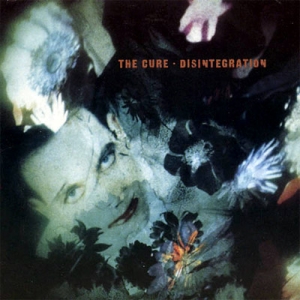
Disintegration is the eighth studio album by English rock band the Cure, released on 2 May 1989 by Fiction Records. The band recorded the album at Hookend Recording Studios in Checkendon, Oxfordshire, with co-producer David M. Allen from late 1988 to early 1989. Following the completion of the mixing, founding member Lol Tolhurst was fired from the band.
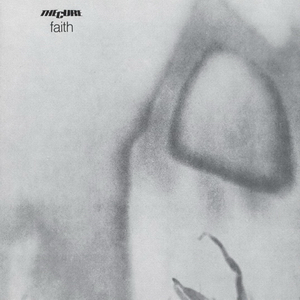
Faith is the third studio album by English rock band the Cure, released on 17 April 1981 by Fiction Records. The album saw the band continuing in the gloomy vein of their previous effort Seventeen Seconds (1980). This stylistic theme would conclude with their next album Pornography (1982).

Boys Don't Cry is the Cure's first compilation album. Released in February 1980, this album is composed of several tracks from the band's May 1979 debut album Three Imaginary Boys with material from the band's 1978–1979 era.
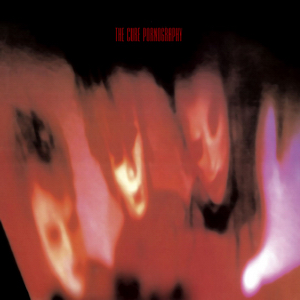
Pornography is the fourth studio album by English rock band the Cure, released on 4 May 1982 by Fiction Records. Preceded by the non-album single "Charlotte Sometimes", it was the band's first album with new producer Phil Thornalley, and was recorded at RAK Studios from January to April 1982. The sessions saw the band on the brink of collapse, with heavy drug use, band in-fighting, and frontman Robert Smith's depression fueling the album's musical and lyrical content. Pornography represents the conclusion of the Cure's early dark, gloomy musical phase, which began with their second album Seventeen Seconds (1980).

Japanese Whispers is the second compilation album by British group The Cure. It was released in late 1983 by Fiction Records. The title is a pun on the children's game Chinese whispers.

Join the Dots: B-Sides & Rarities is a box set of The Cure, released on 26 January 2004, by their former record label Fiction. This box set is a four-disc compilation of B-sides and rarities, digitally remastered by Chris Blair at Abbey Road Studios from their original tapes. The box set includes all B-sides by the band, apart from a number of remixes, as well a number of unreleased songs and songs that had been out of physical circulation for years. Many of the songs had not appeared on CD before. The set includes a booklet with track-by-track commentary and an extensive overview of the band's history up to 2004, followed by an extensive list of The Cure's discography.

Standing on a Beach is a greatest hits album by English rock band the Cure, released in the United States on 15 May 1986 by Elektra Records and in the United Kingdom on 19 May 1986 by Fiction Records, marking a decade since the band's founding in 1976. The album's titles are both taken from the opening lyrics of the Cure's debut single, "Killing an Arab".

"Lovesong" is a song by English rock band the Cure, released as the third single from their eighth studio album, Disintegration (1989), on 21 August 1989. The song saw considerable success in the United States, where it reached the number-two position in October 1989 and became the band's only top-10 entry on the Billboard Hot 100. In the United Kingdom, the single charted at number 18, and it peaked within the top 20 in Canada and Ireland.

"A Forest" is a song by the English rock band the Cure. Co-produced by Mike Hedges and the band's Robert Smith, it was released as a single from the band's second album Seventeen Seconds on 28 March 1980. It was their debut entry on the UK Singles Chart, reaching number 31. The accompanying music video was first shown on BBC's Top of the Pops programme on 24 April 1980.
Michael Stephen Dempsey is an English musician, best known as the bassist for The Cure and The Associates.
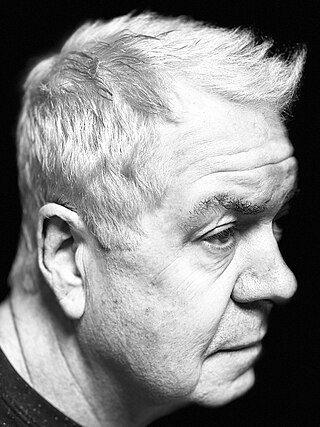
Laurence Andrew Tolhurst, known professionally as Lol Tolhurst, is an English musician, songwriter, producer, and author. He was a founding member of The Cure, for which he first played drums before switching to keyboards. He left the Cure in 1989 and later formed the bands Presence and Levinhurst. He has also published two books and developed the Curious Creatures podcast. This has led him to collaborate with Budgie and Jacknife Lee and the release of an album, Los Angeles (2023).

"Let's Go to Bed" is a song by English rock band the Cure, released as a stand-alone single by Fiction Records in November 1982. In the aftermath of the dark Pornography, Robert Smith returned from a month-long detox in the Lake District to write the song, the antithesis to what the Cure currently represented. It was later included on the album Japanese Whispers, which compiles the band's three singles from 1982 to 1983 and their five B-sides.

"The Love Cats" is a song by English rock band the Cure, released as a stand-alone single in October 1983.
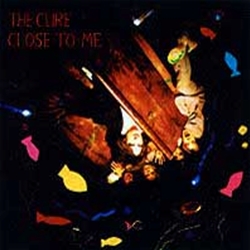
"Close to Me" is a song by English rock band the Cure, released in September 1985 as the second and final single from their sixth album, The Head on the Door.

"Charlotte Sometimes" is a song by English rock band the Cure, recorded at producer Mike Hedges' Playground Studios and released as a non-album single on 9 October 1981 by Polydor Records, following the band's third studio album Faith. The titles and lyrics to both sides were based on the book Charlotte Sometimes by Penelope Farmer.

The English rock band the Cure has released thirteen studio albums, six live albums, two remix albums, seven compilation albums, eight box sets, twelve extended plays, and forty-six singles on Fiction Records and Geffen Records. They have also released twelve video albums and forty-four music videos.

Presence were a British rock band formed in 1990, best known for its associations with The Cure. They released the album Inside in 1992 and split the following year.


















